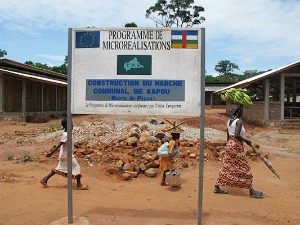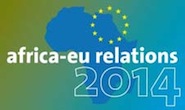+++ Guest post by William Hynes+++ Official Development Assistance (ODA) has for 45 years been the global standard for measuring donor efforts in support of development co-operation objectives. There have recently been calls for the concept to be modernised. Yet the reform proposals on the table constitute modest adjustments rather a radical overhaul. The scope for reform is also bounded by some high level decisions. The 2012 DAC High Level Meeting agreed to “maintain the definition of ODA”, while investigating how to modernise and clarify it, and discussions on the post 2015 development agenda – ...
This week the OECD Development Co-operation Directorate (DAC) Network on Governance hosted a workshop on “Political Economy Analyses (PEA): Lessons Learned and New Directions”. Discussions looked at past progress in incorporating political analysis into donor thinking and programming as well as ways to mainstream this kind of analysis. While that raises a number of challenges it seems to me that it may be helpful to frame thinking and acting politically around four main points: acknowledgement, awareness, adaptation and alteration. Acknowledgement Although the workshop’s group of political-economistas needed no convincing of the political nature of development ...
December 19, 2013
Posted: 12:06 PM CEST
by ecdpm
in Africa Change Dynamics, Conflict, security and resilience, Cross-cutting issues, ECDPM, Economic Governance, Food security, Political economy analysis, Strengthening European External Action, Trade and Regional integration
This year a lot had happened in international development and co-operation. The EU External Action Service review was launched, the African Union celebrated its’ 50th anniversary, and dialogue around the post-2015 agenda began to take centre stage. We look back over the last year of ECDPM blogs and share the top ten of 2013. The most viewed blogs have covered topics from political economy analysis to regional integration in Southern Africa. Top ten blogs of 2013: EEAS review and development: yet another EU coordination challenge? What and who drives regional integration in Southern Africa? Le ...
Guest blog by Christian Kingombe The citizens of the African continent have been introduced to one grand vision of development after the other – from OAU to AU since the well-known debate between Kwame Nkrumah and Nnamdi Azikiwe. However, there is a tendency by some of the African Development Bank’s regional member countries to retreat from fulfilling regional treaty commitments, which, in some cases, would entail losing a degree of sovereignty. What is the biggest stumbling block to achieving the African Integration Vision? But after more than 50 years of solemn regional integration declarations these ...
At the end of June, the European Commission’s (EC) Capacity4Dev website posted a message saying that following a stock-taking of the lessons learned from their work on the development of a methodology for Political Economy Analysis and the testing of it over the past year in a number of countries, that concerns had arisen that understanding the political and economic reality in which they operate belongs among the core tasks of desk officers and staff in delegation and the EEAS. Therefore, the method should make more use of the staff of the EC’s Development Directorate and the European ...
Lant Pritchett, a Harvard University Professor, was the keynote speaker at the OECD Development Centre’s 50th anniversary conference in Paris last week. In his presentation he summarised a few simple insights that are helpful for understanding how and where policy reforms might have more impact. One idea he discussed was that of “isomorphic mimicry” - basically, in the natural world when something takes on the appearance of another thing on the outside, but without necessarily having any of the underlying characteristics. According to Prichett, donors and governments engage in this kind of camouflage too often: ...
To maximise the benefits from aid and minimise the risk of doing harm, donors need to take into account the partner country’s political and economic realities. To do this, a number of donors, including the European Commission, have decided to invest more energy in governance and political economy analysis and to develop models for the systematic analysis of power and its impact on policy change and reform processes. ECDPM and The Policy Practice helped to facilitate an EC seminar with experts on political economy analysis on 11-12 January. It aimed at familiarising EC staff with ...
Decentralization has been an important reform in many developing countries and a major focus of the considerable support provided by development partners to public sector reform. Yet its record is mixed at best in terms of realizing many of the stated objectives of reform, such as enabling more efficient service delivery, advancing democratic reform, and promoting economic development and poverty reduction. The underlying premise of this World Bank publication is that systematic analysis of political economy issues can productively complement the dominantly technical diagnostic work carried out by development partners seeking to undertake decentralization reforms. ...



















